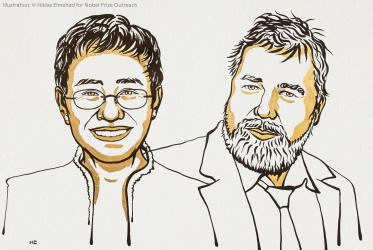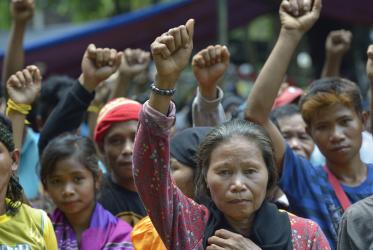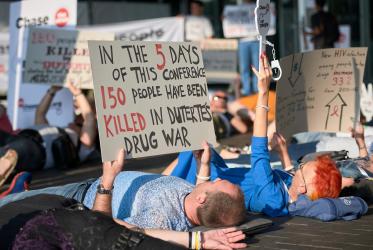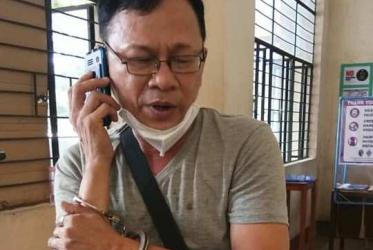Displaying 1 - 20 of 30
WCC congratulates 2021 Nobel Peace Prize laureates
14 October 2021
Churches should use their voice on climate change
26 February 2020
CCIA meets in Brisbane with focus on Pacific regional priorities
19 February 2020
WCC condemns massacre of farmers in Philippines
12 April 2019
A voice for peace from Down Under
10 July 2017












